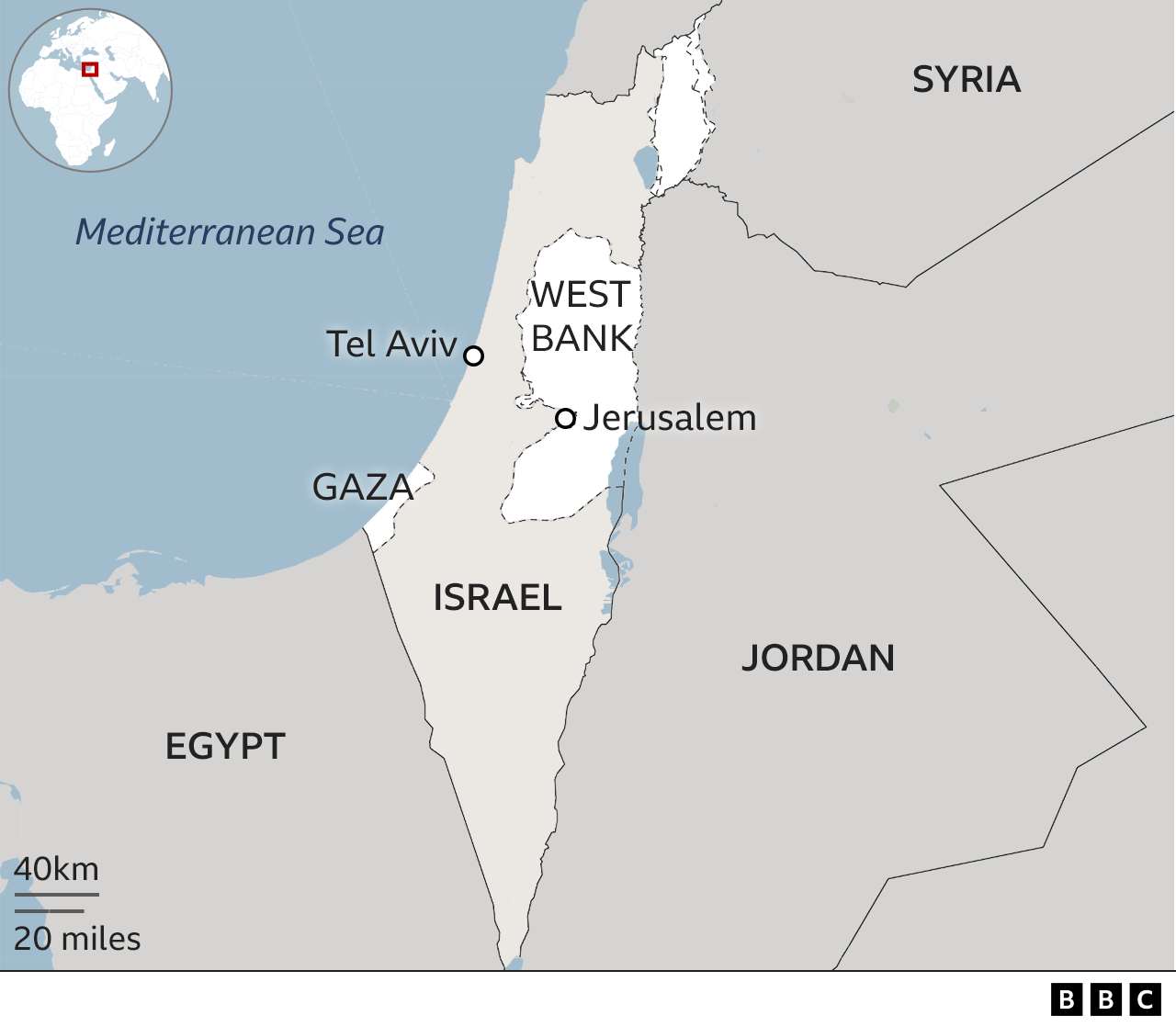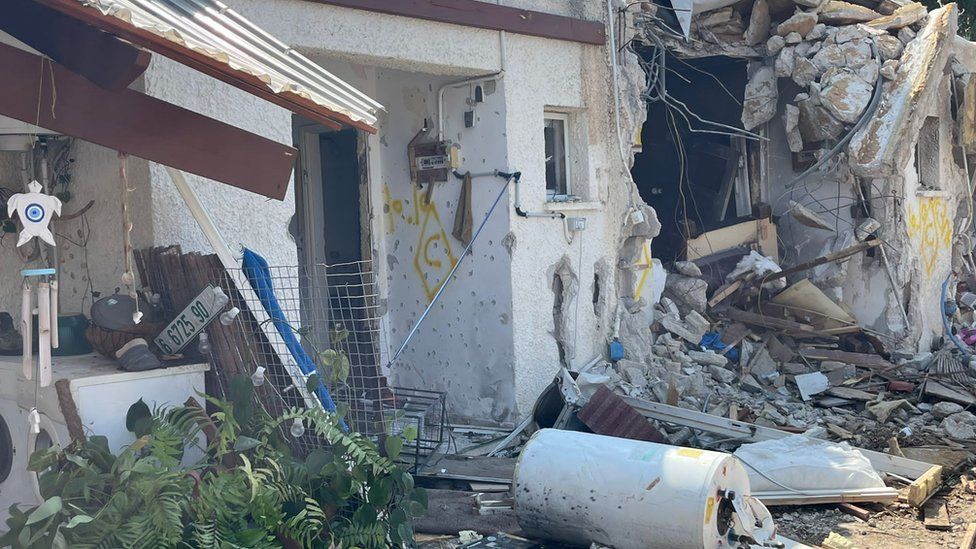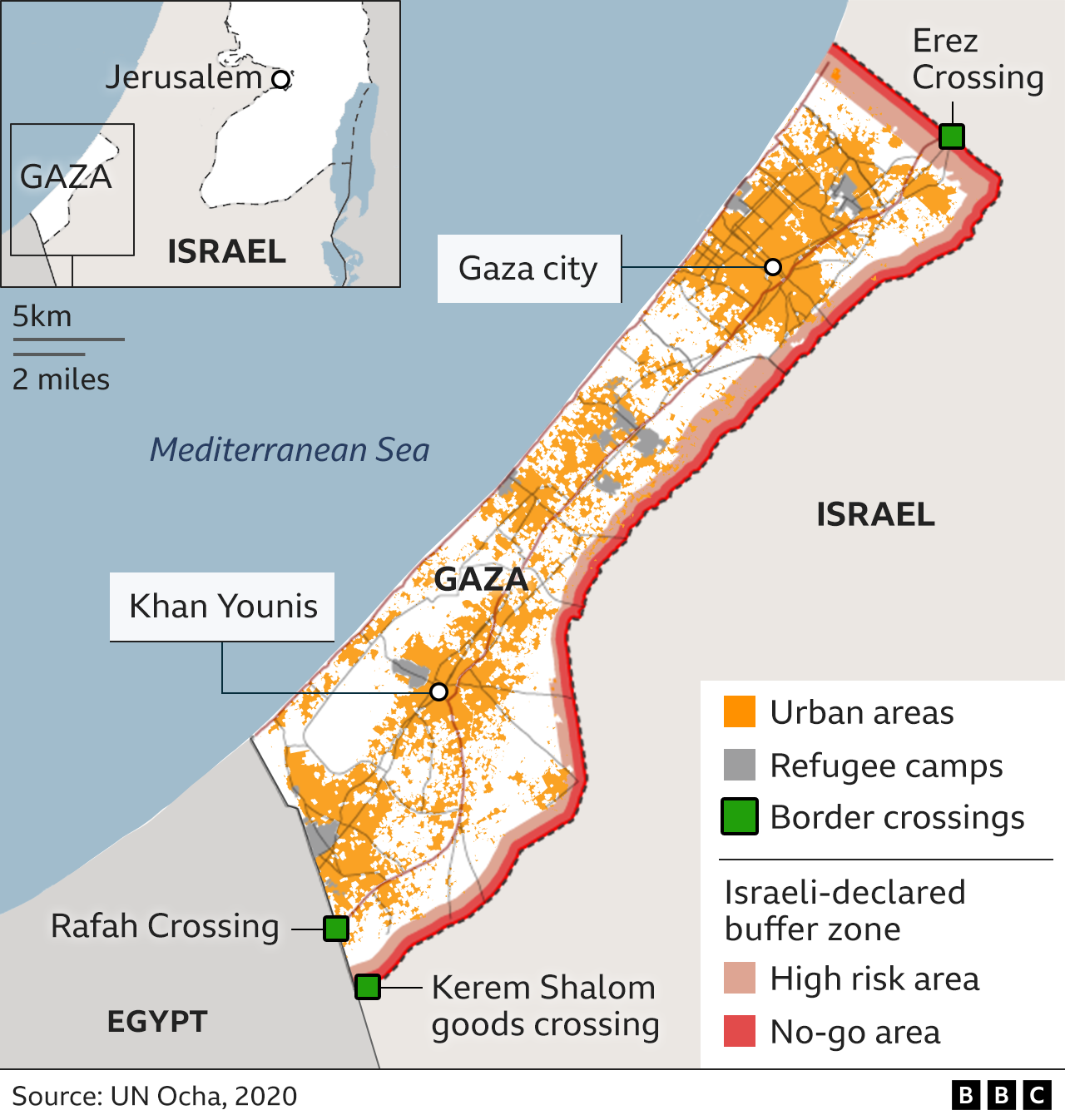23_10
Ejikeme Joy Mmesoma Confesses to Manipulating JAMB Result, Reveals How She Did It in Quick Steps
Israel War: The US has Israel’s back.’ How far could the war spread?
The Take: ‘The US has Israel’s back.’ How far could the war spread?
The United States is sending military support to Israel – and regional neighbours respond.
Unilorin graduates 450 First Class Students
Israel War: What is Hamas?
What is Hamas?
Hamas is a Palestinian militant group which rules the Gaza Strip. Its name is an acronym for Harakat al-Muqawama al-Islamiya, or "Islamic Resistance Movement", and means "zeal" in Arabic.
The group is sworn to Israel's destruction and wants to replace it with an Islamic state.
Hamas has fought several wars with Israel since it took power in Gaza in 2007.
It has fired - or allowed other militant groups to fire - thousands of rockets at Israel, and carried out other deadly attacks.
Israel has repeatedly attacked Hamas with air strikes in response, and sent troops into Gaza during two of the wars. Together with Egypt, it has blockaded the Gaza Strip since 2007 for what it describes as security reasons.
Hamas - or in some cases its military wing, the Izzedine al-Qassam Brigades - has been designated a terrorist group by Israel, the United States, the European Union and the UK, as well as other powers.
Iran backs the group, providing it with funding, weapons and training.
What is the Gaza Strip and why is it important?
The Gaza Strip is a 41km (25-mile) long and 10km-wide territory located between Israel, Egypt and the Mediterranean Sea.
Originally occupied by Egypt, Gaza was captured by Israel during the 1967 Middle East war along with the West Bank and East Jerusalem. Israel withdrew its troops and around 7,000 settlers from the area in 2005.
It is currently home to about 2.3 million people, and has one of the densest populations in the world.

Israel controls the air space over Gaza and its shoreline, and strictly controls the movement of people and goods through its border crossings.
Similarly, Egypt controls who passes in and out through its border with Gaza.
About 80% of the population of Gaza depends on international aid, according to the UN, and about one million people rely on daily food aid.
After Hamas's unprecedented attack, Israel announced a "siege" of Gaza - cutting its supplies of electricity, fuel, food, goods and water.
Mains electricity has gone out in Gaza, after its one power station ran out of fuel. Without electricity, Gaza's water and sewage systems are also expected to shut down.
People in Gaza will have to rely on generators for electricity - if they have the fuel to run them.
Watch: Hiding at home, blinded and choked by dust - a video diary from Gaza
What is Palestine?
The West Bank and Gaza, which are known as the Palestinian territories, as well as East Jerusalem and Israel all formed part of a land known as Palestine from Roman times until the mid-20th Century.
These were also the lands of Jewish kingdoms in the Bible, and are seen by many Jews as their ancient homeland.
Israel was declared a state in 1948, though the land is still referred to as Palestine by those who do not recognise Israel's right to exist.
Palestinians also use the name Palestine as an umbrella term for the West Bank, Gaza and East Jerusalem.
Why did Hamas launch its latest attack?
Although the attack by the militants on 7 October was unexpected, it came at a time of soaring Israeli-Palestinian tensions.
This year has been the deadliest on record for Palestinians who live in the Israeli-occupied West Bank, which could have motivated Hamas to strike Israel with a spectacular attack.
Hamas might also have been seeking to score a significant propaganda victory against Israel to boost its popularity among ordinary Palestinians.
The fact that it has taken so many Israeli hostages captive is thought to be designed to pressure Israel to free some of the estimated 4,500 Palestinians held in Israeli prisons - a highly emotive issue for all Palestinians.
There is also speculation that the attack was orchestrated by Iran - Israel's arch-foe - though Iran's Supreme Leader has denied his country's involvement.
Iran and Hamas also staunchly oppose the growing prospect of an historic peace deal between Israel and Saudi Arabia.
This might be thwarted if Israel's military response to the Hamas attacks provokes widespread anger in the Arab world.
- How Hamas' shock attack unfolded
- Who are the hostages taken by Hamas from Israel?
How does this compare to previous Hamas attacks?
The BBC's international editor Jeremy Bowen says this is the most ambitious operation Hamas has ever launched from Gaza, and the most serious cross-border attack Israel has faced in more than a generation.
Militants breached the wire that separates Gaza from Israel in multiple places.
Details of a massacre in one Israeli community, Kibbutz Kfar Aza, have emerged - with an Israeli general speaking of babies killed. Israeli soldiers told Jeremy Bowen that some of the dead had been beheaded.
 IMAGE SOURCE,OREN ROSENFELD
IMAGE SOURCE,OREN ROSENFELDSince the latest attack began, the death toll in Israel has reached 1,200 - while more than 1,000 people have been killed by Israeli air strikes on Gaza.
Why wasn't the attack foreseen by Israeli intelligence?
Given the combined resources of the Shin Bet, Israeli domestic security services, its external spy agency Mossad, and all the assets of the Israel Defense Forces, the BBC's security correspondent Frank Gardner says it is astounding that nobody saw this coming or failed to act on it if they did have a warning.
Israel has arguably the most extensive and well-funded intelligence services in the Middle East, with informants and agents inside Palestinian militant groups, as well as in Lebanon, Syria and elsewhere.

The border fence between Gaza and Israel has cameras, ground-motion sensors and regular army patrols.
The barbed-wire topped fence is supposed to have been a "smart barrier" to prevent exactly the sort of infiltration that has taken place in this attack.
But Hamas militants simply bulldozed their way through it, cut holes in the wire or entered Israel from the sea and by paraglider.
How is the US involved?
America is Israel's closest ally, and successive administrations have declared the US' "iron-clad" commitment to Israel's security.
In the wake of the Hamas attack, the US announced it was moving an aircraft carrier, ships and jets to the eastern Mediterranean, and that it would also give Israel additional equipment and ammunition.
As well as a show of support towards Israel, the move could be a warning to the powerful Lebanese militant group, Hezbollah - an enemy of Israel and supporter of Hamas - not to attack Israel.
At least 14 US citizens - along with victims from about 16 countries, excluding Israel - have been killed in the Hamas attack. A number of US citizens are also among the dozens of people being held hostage by Hamas in Gaza.
What happened in 1973, and why are people comparing it to Hamas' latest attack?
Some are comparing the Hamas attack with what Israelis refer to as the Yom Kippur War of 1973. Almost exactly 50 years ago, Israel was caught in a surprise attack by Egypt and Syria on the Jewish holy day of Yom Kippur.
The Arab forces made significant advances before Israel's were able to repel them.
In the war, 2,656 Israeli soldiers were killed, and thousands more were wounded. On the Arab side, some 18,000 were killed and tens of thousands were wounded.
The fact that Israel was caught off-guard and suffered so many casualties made a deep impact on the Israeli psyche, and its subsequent focus on military preparedness convinced Israelis that such an event could never happen again.
How might Israel and the Arab world respond?
Hamas military commander Mohammed Deif has called on Palestinians and other Arabs to join the militants' operation to "sweep away the [Israeli] occupation".
It is not clear whether Palestinians in the occupied West Bank and East Jerusalem or elsewhere in the region will heed his call, according to the BBC's Jerusalem correspondent Yolande Knell.
Israel undoubtedly sees the potential for a war that could open up on multiple fronts.
One worst case scenario would see the involvement of Lebanon's Hezbollah movement.
Since the attack, the Iran-backed militant group has launched a number of missiles and shells at northern Israel. Israeli forces have responded by attacking Hezbollah positions and other infrastructure.
The Israeli military has ordered a massive reinforcement of troops and is expected to launch a ground offensive on the Gaza Strip soon.
It says 300,000 personnel including recently-mobilised reservists are near the Gaza border "ready to execute the mission we have been given".
Mobhad: Bella Shmurda Tribute
Nigerian singer Bella Shmurda has released a new song titled “My Brother” in tribute to his late friend and collaborator, Mohbad. The song is a heartfelt and emotional ballad, with Shmurda singing about the pain of losing a close friend.
The song’s music video is also a tribute to Mohbad, with Shmurda visiting places that were special to their friendship. The video is a moving and fitting tribute to a talented artist who was gone too soon.





